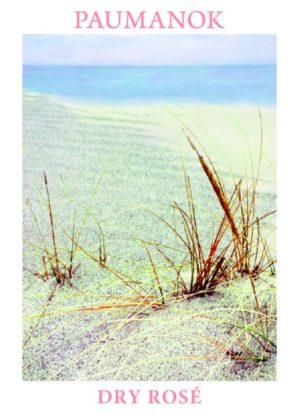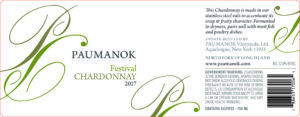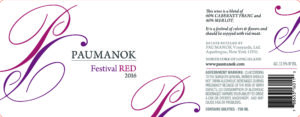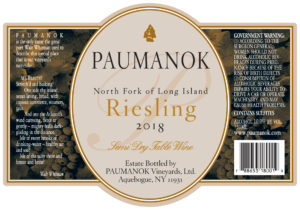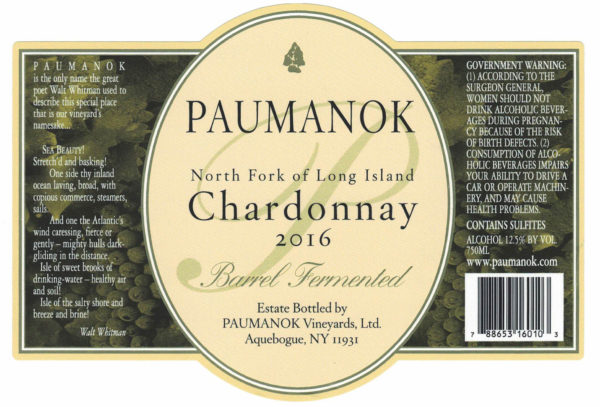
Chardonnay – Barrel Fermented
| Country | USA |
|---|---|
| Region | Long Island |
| Producer | Paumanok |
| Size | 750mL |
| Style | White |
| Practices | Sustainable |
| Grapes | Chardonnay |
| Other Features | Screw Cap |
100% Chardonnay, harvested mid-September. The fruit was loaded directly in the press to avoid phenolic extraction. The free run juice was clarified in stainless steel tanks under refrigeration. Only free run juice was used to make this wine. The clear juice was inoculated with the CY 3079 yeast strain, isolated in Burgundy in barrel fermentation. This is a slow acting yeast, used in order to preserve as much of the fruitiness as possible. The fermenting must was then transferred to French oak barrels (80% neutral, 20% three year old), where alcoholic fermentation was completed. Thereafter the wine was inoculated with oenococcus oeni to promote the malolactic fermentation. At the same time the barrels were stirred to keep the lees in suspension. The result is that the yeast cells, that have now finished their fermenting task, begin to absorb the heavier oak flavors. In the end the yeast cells go through autolysis, which gives a certain creaminess to the wine. This process is performed to both avoid a reductive character in the wine and tone down the oakiness: the oak plays a supporting role, integrating well with the fruit rather than being featured as a recognizable component of the wine. The wine was bottled early June and sealed with a screw cap to preserve freshness and cleanliness. 12.5% alcohol. 578 cases produced.
Attractive aromas of apple, yeast and butterscotch. Medium-bodied with rich melon and apple flavors and a crisp, balanced finish.
About the Producer
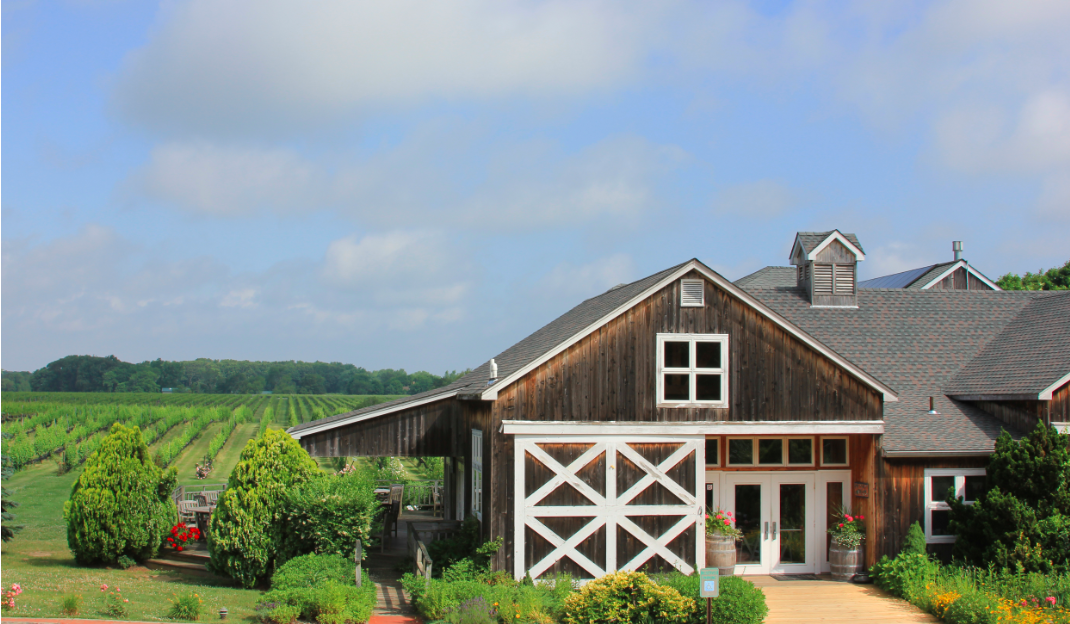
Founded in 1983 by the Massoud family, Paumanok Vineyards is the 2nd oldest winery on Long Island – and the oldest winery on Long Island still owned and run by its founder’s family. Established by Charles Massoud, a native of Lebanon, and his wife Ursula, a native of the Pfalz, Germany – and member of a winemaking/grape growing family – the estate is now run by their sons. Their eldest son, Kareem, is the winemaker; their son Nabeel is the viticulturalist, and their son Salim runs their administrative functions. The estate takes its name from an Algonquian name for Long Island, which was famously referenced by Walt Whitman in his poem “Starting from Paumanok”, published in Leaves of Grass.
Their 127-acre estate property is planted with 32 ha of Chardonnay, Riesling, Sauvignon Blanc, Chenin Blanc, Merlot, Cabernet Sauvignon, Cabernet Franc, Petit Verdot, Malbec, Pinot Noir, and Melon de Bourgogne – densely plated at 1,100-1,400 vines per acre to produce more concentrated fruit and higher quality wines. Their wines are only made with estate fruit and production is limited to under 12,000 cases.
Their terroir is defined by the North Fork’s maritime climate and sandy, loamy topsoil and gravelly subsoil with excellent drainage, similar to Premiers Cru Bordeaux sites. In winter, Long Island Sound and Peconic Bay, which surround the estate, act as giant heat sinks and insulate the vineyards from extreme low temperatures. In summer, they moderate the heat experienced in the city and inland. At harvest, Paumanok often experiences a long Indian summer due to the maritime climate. Sustainable farming and careful canopy management allow the terroir to express itself in their delicately crafted wines. Kareem’s winemaking approach is meticulous and low-intervention, with minimal use of sulfur dioxide.
Paumanok is certified sustainable by Long Island Sustainable Winegrowing (LISW). LISW is the first organization of its kind on the East Coast – modeled after similar organizations on the West Coast, like Oregon LIVE and Lodi Rules. Since 2017, the winery is 100% solar powered by their own solar panels.
Paumanok
New York Wines, Wineries, Wine Making History of New York - Charles Massoud
Click here for Kareem Massoud's interview, "Vineyard Chat" with Jeff Harding

related products
-
Paumanok
Dry Rose
-
Paumanok
Chardonnay – Festival
-
Paumanok
Red Blend – Festival
-
Paumanok
Riesling – Semi-Dry

